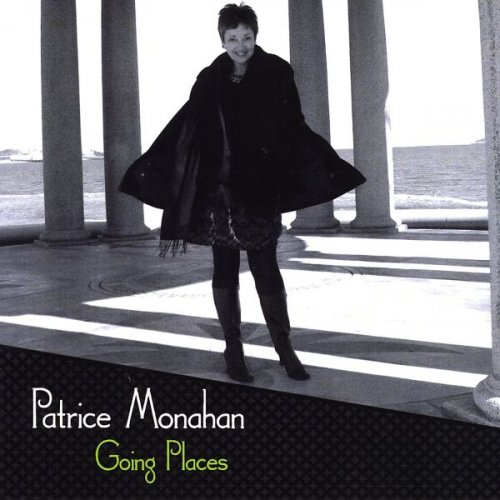A Light Sleeper - Equaeverpoise (2023) [Hi-Res]
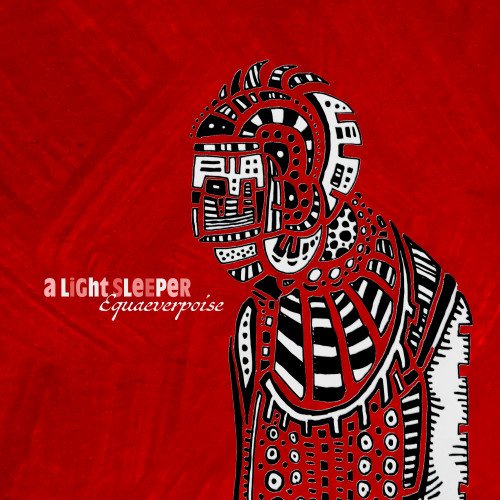
Artist: A Light Sleeper
Title: Equaeverpoise
Year Of Release: 2023
Label: A Light Sleeper
Genre: RIO, Chamber Rock, Experimental, Jazz, Art Roc
Quality: FLAC (tracks) 24/44,1, FLAC (tracks), 320 kbps
Total Time: 30:42
Total Size: 329 / 175 / 77 MB
WebSite: Album Preview
Tracklist:Title: Equaeverpoise
Year Of Release: 2023
Label: A Light Sleeper
Genre: RIO, Chamber Rock, Experimental, Jazz, Art Roc
Quality: FLAC (tracks) 24/44,1, FLAC (tracks), 320 kbps
Total Time: 30:42
Total Size: 329 / 175 / 77 MB
WebSite: Album Preview
01. equa 0:51
02. Trees and Flora 2:59
03. Chrysanthemums 3:53
04. ever 2:48
05. Beginners Waltz 4:49
06. That To Which We Know Not What 3:51
07. Old Weird Fiction 3:45
08. poise 3:15
09. Eggcorn and Mondegreen, Attorneys of Law. 4:29
Chicago’s a Light Sleeper initially emerged in the summer of 2005 as a duo consisting of Matthew Jung (drums, keyboard) and Dheeru Pennepalli (guitar, vocals). Having come up in the DIY post-punk/hardcore/noise scene, they were both eager to do something drastically different — a quieter band, exploring minimalism and improvisation built around Pennepalli’s experiments live-looping his atypically tuned guitar and voice.
The duo prepared a 20-minute set, and made their decidedly inauspicious debut at The Mutiny, a now defunct dive bar known for showcasing hard rock and metal bands (as well as for being home to the largest urinal in Chicago). Many of those in attendance didn’t realize the band was actually performing and assumed Pennepalli was still sound checking or troubleshooting a faulty amp. Despite such early hiccups, the band soon began gigging regularly in the city, with notable early performances opening for Jeff Parker’s Cushicle Trio, Azita, and Geoff Farina.
In 2007, Pennepalli met Maria Elena Hernandez (alto/tenor sax, voice) and invited her to sit in on a rehearsal. A recent transplant from Indiana, Hernandez had studied music education and the classical saxophone repertoire at Indiana University South Bend. Having little formal training themselves, Jung and Pennepalli were quite impressed with her smooth and polished sound. Hernandez agreed to join the band, and as she composed sax parts for the duo’s existing songs, she began influencing the writing process overall — giving more structure and form to the compositions while still leaving plenty of space for improvisation. The new trio released their first EP Amicability on Another New Calligraphy, an independent art/music/literature imprint, in 2009.
From 2010 to 2011, multi-instrumentalist Chandler Evans (bass, guitar, percussion) joined the trio during his brief time living in Chicago. Though his tenure was short, Evans had become an integral part of the band, contributing to their followup EP Brevity (recorded in early 2011 but not released until the following year), as well as the band’s original score for Life as Lincoln, a feature-length documentary about an annual convention for Abraham Lincoln impersonators.
Following Evans’ departure, the band recruited David Keller (cello) after Pennepalli saw him performing with a jazz-pop group. A busy working musician juggling several projects, it took some convincing for him to finally attend a rehearsal. But within minutes, Keller was hooked. He immediately invited close friend and frequent collaborator Traci Huff (viola), an idiosyncratic player known in Chicago’s classical and new music communities for her unique phrasing and use of extended techniques.
With Keller and Huff on board, 2011 would prove to be a momentous year for the band. They began functioning more like a true composers collective, with Keller and Huff favoring a more structured approach to songwriting. For the first time, the band was charting out sections on a whiteboard and notating music. This more rigorous process quickly yielded the band’s first EP as a quintet, Concision, their final release for Another New Calligraphy.
On another note, 2011 also marked the beginning of Hernandez and Pennepalli’s romantic involvement — much to their bandmates’ relief, who by then had endured months of sitcom-ish ‘will they/won’t they’ melodrama from the two. “Jung sat us down and made us both promise we wouldn’t let it impact the band, and that if things went bad we’d handle it like adults,” recalls Hernandez. Fortunately, things didn’t go bad, and the couple were married in 2018.
Finally hitting their stride as an ensemble, the band began writing their most ambitious album to date, Distinction (a Ballet in Six Parts). “That was our attempt at creating something in the tradition of the classic prog-rock concept album,” Pennepalli recalls. “Dheeru and I had become obsessed with this Pina Bausch documentary, which inspired a lot of discussion between us about the creative process and how an artist is forced to confront their ego and insecurities. So, the lyrics and music were written to convey cyclical and interweaving emotions experienced during a creative process,” adds Hernandez.
Shortly after recording the album, the band embarked on a short tour in the fall of 2016 with dates in New York, Washington D.C. and Boston. Shortly after returning, Keller informed the band he’d be stepping down. Soon to become a father, Keller made the difficult decision to scale back his creative pursuits to focus on teaching. The band would eventually self-release Distinction in 2019.
Keller’s departure left the remaining four members in a bit of a predicament. Attempts to rearrange the songs on Distinction for quartet were unsatisfactory, as were attempts to find a suitable fifth member. They soon decided to start fresh, and took the next couple of years off from performing to focus on writing an entirely new set of songs as a quartet. In November 2018 they debuted the new material to an enthralled audience at an art gallery in Chicago. The new songs were leaner, tighter, and had a more buoyant energy — almost as if it were an entirely new band.
Looking back, Pennepalli marvels at the band’s growth from that scrappy little duo opening a metal show at a dive bar. “Over the years our sound has evolved from loop-based improvisations and dreamy, layered soundscapes to more tightly constructed and focused compositions. And now we’re trying to find a balance between the two approaches,” Pennepalli says of the band’s music. He continues, “what we’re trying to do is write just a bit beyond our technical capabilities — the goal being to challenge ourselves with difficult music, but presenting it in a way that’s accessible and flexible. By ‘flexible’, I mean music that the listener can enjoy on a casual level — like background music at a social gathering, or passively listening on headphones while working — but it also reveals subtleties and layers of complexity through more focused, active listening. So in other words, music that’s both easy and difficult at the same time.”
The duo prepared a 20-minute set, and made their decidedly inauspicious debut at The Mutiny, a now defunct dive bar known for showcasing hard rock and metal bands (as well as for being home to the largest urinal in Chicago). Many of those in attendance didn’t realize the band was actually performing and assumed Pennepalli was still sound checking or troubleshooting a faulty amp. Despite such early hiccups, the band soon began gigging regularly in the city, with notable early performances opening for Jeff Parker’s Cushicle Trio, Azita, and Geoff Farina.
In 2007, Pennepalli met Maria Elena Hernandez (alto/tenor sax, voice) and invited her to sit in on a rehearsal. A recent transplant from Indiana, Hernandez had studied music education and the classical saxophone repertoire at Indiana University South Bend. Having little formal training themselves, Jung and Pennepalli were quite impressed with her smooth and polished sound. Hernandez agreed to join the band, and as she composed sax parts for the duo’s existing songs, she began influencing the writing process overall — giving more structure and form to the compositions while still leaving plenty of space for improvisation. The new trio released their first EP Amicability on Another New Calligraphy, an independent art/music/literature imprint, in 2009.
From 2010 to 2011, multi-instrumentalist Chandler Evans (bass, guitar, percussion) joined the trio during his brief time living in Chicago. Though his tenure was short, Evans had become an integral part of the band, contributing to their followup EP Brevity (recorded in early 2011 but not released until the following year), as well as the band’s original score for Life as Lincoln, a feature-length documentary about an annual convention for Abraham Lincoln impersonators.
Following Evans’ departure, the band recruited David Keller (cello) after Pennepalli saw him performing with a jazz-pop group. A busy working musician juggling several projects, it took some convincing for him to finally attend a rehearsal. But within minutes, Keller was hooked. He immediately invited close friend and frequent collaborator Traci Huff (viola), an idiosyncratic player known in Chicago’s classical and new music communities for her unique phrasing and use of extended techniques.
With Keller and Huff on board, 2011 would prove to be a momentous year for the band. They began functioning more like a true composers collective, with Keller and Huff favoring a more structured approach to songwriting. For the first time, the band was charting out sections on a whiteboard and notating music. This more rigorous process quickly yielded the band’s first EP as a quintet, Concision, their final release for Another New Calligraphy.
On another note, 2011 also marked the beginning of Hernandez and Pennepalli’s romantic involvement — much to their bandmates’ relief, who by then had endured months of sitcom-ish ‘will they/won’t they’ melodrama from the two. “Jung sat us down and made us both promise we wouldn’t let it impact the band, and that if things went bad we’d handle it like adults,” recalls Hernandez. Fortunately, things didn’t go bad, and the couple were married in 2018.
Finally hitting their stride as an ensemble, the band began writing their most ambitious album to date, Distinction (a Ballet in Six Parts). “That was our attempt at creating something in the tradition of the classic prog-rock concept album,” Pennepalli recalls. “Dheeru and I had become obsessed with this Pina Bausch documentary, which inspired a lot of discussion between us about the creative process and how an artist is forced to confront their ego and insecurities. So, the lyrics and music were written to convey cyclical and interweaving emotions experienced during a creative process,” adds Hernandez.
Shortly after recording the album, the band embarked on a short tour in the fall of 2016 with dates in New York, Washington D.C. and Boston. Shortly after returning, Keller informed the band he’d be stepping down. Soon to become a father, Keller made the difficult decision to scale back his creative pursuits to focus on teaching. The band would eventually self-release Distinction in 2019.
Keller’s departure left the remaining four members in a bit of a predicament. Attempts to rearrange the songs on Distinction for quartet were unsatisfactory, as were attempts to find a suitable fifth member. They soon decided to start fresh, and took the next couple of years off from performing to focus on writing an entirely new set of songs as a quartet. In November 2018 they debuted the new material to an enthralled audience at an art gallery in Chicago. The new songs were leaner, tighter, and had a more buoyant energy — almost as if it were an entirely new band.
Looking back, Pennepalli marvels at the band’s growth from that scrappy little duo opening a metal show at a dive bar. “Over the years our sound has evolved from loop-based improvisations and dreamy, layered soundscapes to more tightly constructed and focused compositions. And now we’re trying to find a balance between the two approaches,” Pennepalli says of the band’s music. He continues, “what we’re trying to do is write just a bit beyond our technical capabilities — the goal being to challenge ourselves with difficult music, but presenting it in a way that’s accessible and flexible. By ‘flexible’, I mean music that the listener can enjoy on a casual level — like background music at a social gathering, or passively listening on headphones while working — but it also reveals subtleties and layers of complexity through more focused, active listening. So in other words, music that’s both easy and difficult at the same time.”
![Hanna Paulsberg Concept - Waltz for Lilli (2012) [Hi-Res] Hanna Paulsberg Concept - Waltz for Lilli (2012) [Hi-Res]](https://www.dibpic.com/uploads/posts/2026-03/1772432856_zl4ax53u6ddcs_600.jpg)
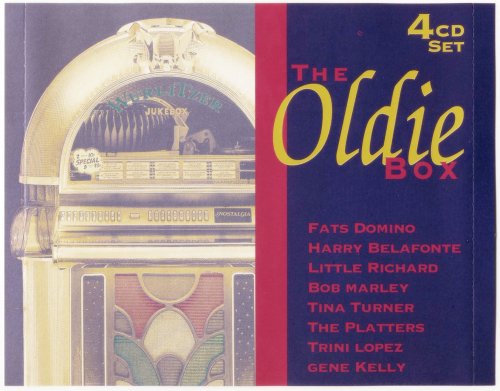
![VA - From the Archive Vol. 3... compiled by Volcov (2026) [Hi-Res] VA - From the Archive Vol. 3... compiled by Volcov (2026) [Hi-Res]](https://www.dibpic.com/uploads/posts/2026-02/1772033794_a3743742618_10.jpg)
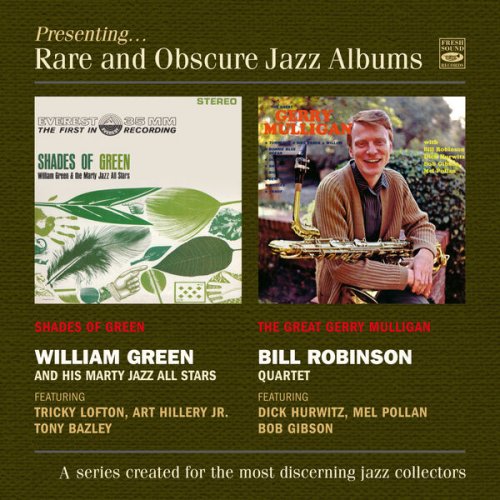
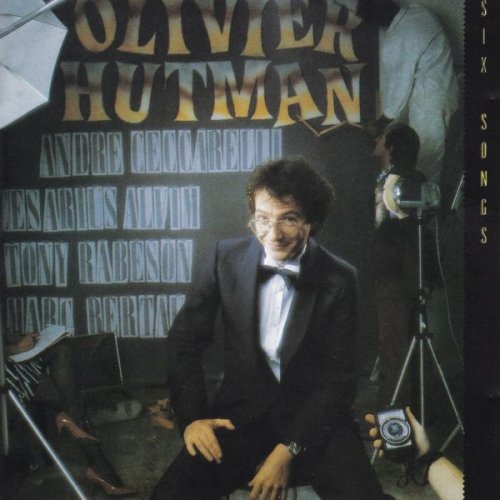

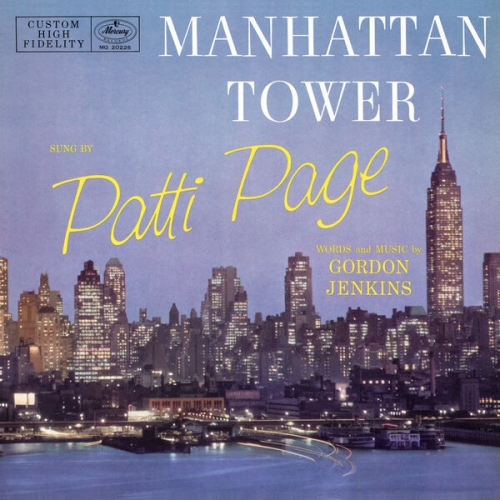
![Whatever Happens Don't Be Yourself! - Tales of No Consequence (2026) [Hi-Res] Whatever Happens Don't Be Yourself! - Tales of No Consequence (2026) [Hi-Res]](https://img.israbox.com/img/2026-02/27/6usdiy5oinb96d1lfeldes4eg.jpg)
